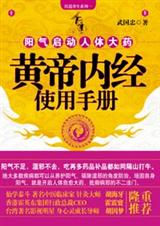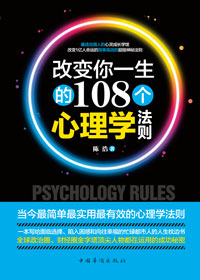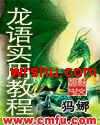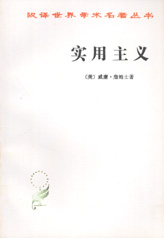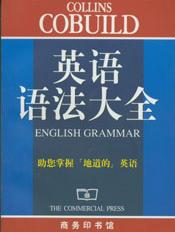牛津实用英语语法-第93部分
按键盘上方向键 ← 或 → 可快速上下翻页,按键盘上的 Enter 键可回到本书目录页,按键盘上方向键 ↑ 可回到本页顶部!
————未阅读完?加入书签已便下次继续阅读!
The thieves tied up the night watchman before opening the safe.(tied the man up/tied him up)
盗匪在开保险柜之前将值夜班的警卫捆了起来。
try
try on(tr) 试穿(衣物):
Customer in dress shop:I like this dress.Could I try it on?(try thisdress on/try on this dress)
服装店中的顾客:我喜欢这件衣服。能试穿一下吗?
try out(tr) 试验:
We won’t know how the plan works till we have tried it out.
我们要到试验过这个计划以后才能知道它的效果如何。
They are trying out new ways of preventing noise in hospitals.(tryingthem out)
人们在试验使用新的方法阻止医院里的噪音。
turn
turn away(tr) 拒之门外,阻挡在门外:
The man at the door turned away anybody who hadn’t an invitation card.(turned them away)
站在门口的这个人把没有请帖的人都拒之门外。
turn down(tr) 拒绝,不批谁,拒不接受建议、申请、申请的人等:
I applied for the job but they turned me down/turned down my applica…tion because I didn’t know German.
我申请这个职务,但是他们拒绝了我/我的申请,因为我不懂德语。
He was offered £500 for the picture but he turned it down.(turneddown the offer/turned the offer down)
人家提出要以500镑买他那幅画,但他拒绝了。
turn in(intr) 上床睡觉(主要为海员、露营者等所用):
The captain turned in,not realizing that the icebergs were so close.
船长上床睡觉了,没有意识到冰山已靠得这么近了。
turn into(tr) 转换为,变为:
I am going to turn my garage into a playroom for the children.
我要把车库改建为孩子们的游戏室。
She turned the silver candlestick into a reading lamp.
她把这个银烛台改成了一盏阅读灯。
turn on(tr)(重音在turn上)突然袭击(袭击者常是朋友或
一头过去表示友好的野兽):
The tigress turned on the trainer and struck him to the ground.
雌虎突然袭击驯虎人,把他打倒在地。
turn on/off(tr) 开/关(电灯、煤气、炉灶、收音机、水龙头等)turn out(tr)
(a)生产,产出:
The creamery turns out two hundred tons of butter a week.(turns it out)这家奶制品厂每周生产200吨黄油。
(b)逐出,翻出,腾空:
1 turn a person out 将人逐出家屋/套房/居室:
At one time,if tenants didn’t pay their rent the landlord could turn themout.
从前,如果房客付不起房租,房东可以把他们赶出去。
2 turn out one’s pockets/handbags/drawers etc.
将衣袋/手提包/抽屉等翻空,常是为了寻找某物:
‘Turn out your pockets,’said the detective.
侦探说:“把你口袋里的东西都翻出来。”
3 turn out a room 彻底打扫,先将家具搬出去:
I try to turn out one room every month if I have time.
我尽量在有工夫的时候每个月彻底打扫一个房间。
turn out(intr)
(a)集合,上街(常是为了欢迎某人):
The whole town turned out to wele the winning football team whenthey came back with the Cup.
得胜的足球队捧着奖杯凯旋而归时,城里人万人空巷地欢迎他们。
(b)发展,变化,结果:
I’ve never made Yorkshire pudding before so I am not quite sure how it isgoing to turn out.
我以前从来没有做过约克郡布丁,因此我不知道这一次做出来的会结果如何。
Marriages arranged by marriage bureaux frequently turn out well.由婚姻介绍所安排的婚姻结果常常美满。
(c)原来是……(注意有两种结构:it turned out that…和he turned out to be…):
He told her that he was a bachelor but it turned out that he was marriedwith six children.
他告诉她说他是单身汉,可事实证明他原来已经结婚了,有六个孩子。
Our car broke down half way through the journey but the hiker we hadpicked up turned out to be an expert mechanic and was able to put thingsright.
我们的汽车走到半路坏了,可是路上搭我们便车的那人敢情是个熟练的修车工,把车给修好了。
注意turn out与e out不同。用turn out时,后来所发现的事总是要说出来的,而且也并不暗示这事是坏事。用e out时,只告诉人说某些事实已经被揭露了(这些事实常是名声不好的),但不说明这些事实的内容。
turn over(tr)翻过来:
He turned over the stone.(turned the stone over/turned it over)
他把石头翻了过来。
The initials‘PTO’at the bottom of a page mean‘Please turn over’.
在一页下端的首字母缩写“PTO”意思是“请看背面”。
‘Turn over a new leaf.’
“翻开新的一页。”(再次开始,痛改前非。)
turn over(intr)
(a)翻转(指车、船等交通工具):
The car struck the wall and turned over.
汽车撞到墙上,翻了个个儿。
The canoe turned over,throwing the boys into the water.
独木舟翻了,把男孩子们抛入水中。
(b)翻身(指人):
It is difficult to turn over in a hammock.
睡吊床时翻身很困难。
When his alarm went off he just turned over and went to sleep again.
他的闹钟响时,他只是翻了个身,又睡着了。
turn up/down(tr) 开大/关小,增加/减小压力、力量、容量、音量等(指煤气、石油、灯火、炉灶、或收音机等):
Turn up the gas;it is much too low.
把煤气灶开大一些,火太小了。
I wish the people in the next flat would turn down their radio.You canhear every word.(turn the sound down/turn it down)
我真希望隔壁套房里的人家能把收音机音量调小些。你都能听到每个字。
turn up(intr) 出现,到来(通常是从等待或搜寻的人的角度来讲):
We arranged to meet at the station but she didn’t turn up.
我们商量好在车站见面,可是她没有露面。
Don’t bother to look for my umbrella;it will turn up some day.
别费心找我的伞了;它迟早会自己出来的。
wait
wait on(tr) 伺候,上饭菜(在家里或在饭馆里):
He expected his wife to wait on him hand and foot.
他指望他妻子跑前跑后地伺候他。
The man who was waiting on us seemed very inexperienced;he got allour orders mixed up.
那个给我们服务的人好像很缺乏经验,把我们叫的菜全搞混了。
walk
walk out(intr) 大步走出去,退场(因为愤怒、不满或讨厌等):
Some people were so disgusted with the play that they walked out in themiddle of the first act.
有些人对这剧感到非常厌恶,以致在第一幕演到一半时就退场了。
wash
wash up(tr/intr)(在饭后)洗碗碟餐具:
When we have dinner very late we don’t wash up till the next morning.
(wash up the dishes/wash them up)
我们晚饭要是吃得很晚,就把碗碟放到第二天早上再洗。
watch
watch out(intr) 当心,留神,注意
watch out for(tr) 留意,小心提防,注意寻找(参见look outfor)
wear
wear away(intr) 逐渐磨损或磨平,磨蚀出凹痕(常指木、石等,而且主语常为风雨等自然力或踏踩、拭抚此的人等)
It is almost impossible to read the inscription on the monument as most ofthe letters have been worn away.
由于多数的字母久经风雨,纪念碑上的铭文已经无法卒读了。
wear off(intr) 逐渐消失(可以按字面意义使用,但主要用来指体力或精神上的感觉):
These glasses may seem unfortable at first but that feeling will soonwear off.
这副眼镜可能起初戴着不舒服,但是那种感觉逐渐就会没有了。
When her first feeling of shyness had worn off she started to enjoy her…self.
她开头的羞涩感逐渐消失时,她便开始玩得高兴起来。
He began to try to sit up,which showed us that the effects of the drugwere wearing off.
他开始试图坐起身来,这向我们表明药力正在消退。
wear out(tr/intr)
(a)(tr)用到无法再用为止;(intr)由于经常使用而破损,不能再用(常用于衣物):
Children wear out their shoes very quickly.(wear their shoes out/wear them out)
孩子穿鞋时破得很快。
Cheap clothes wear out quickly.
便宜的衣服破得快。
(b)(tr)使疲惫,耗竭(指人;常用被动态):
He worked all night and wanted to go on working the next day,but wesaw that he was pletely worn out and persuaded him to stop.
他干了个通宵,还想第二天接着干,可是我们看到他已经筋疲力尽,就劝他停止工作。
wind
wind up(tr/intr)(使)结束(常指演讲或业务过程):
The headmaster wound up(the meeting)by thanking the parents.
(wound the meeting up/wound it up)
校长以向家长们表示感谢结束了这次会议。
wipe
wipe out(tr) 消灭,彻底毁坏:
The epidemic wiped out whole families.(wiped whole families out/wiped them out)
这次瘟疫使许多人家绝户了。
work
work out(tr) 通过运算或研究取得某问题的解决或处理方法,研究并决定某一计划的细节:
He used his calculator to work out the cost.(work the cost out)
他用计算器算出了需支付多少钱。
Tell me where you want to go and I’ll work out a route.
你告诉我你想上哪儿,我就会给你安排出一条路线来。
This is the outline of the plan.We want the mittee to work out the details.(work them out)
这就是计划的提纲。我们想让委员会商议出细节来。
?
'Amber demo'
第三十九章 不规则动词表?
?
'Amber demo'
364 不规则动词
?
下表中用斜体印出的动词,在现代英语中不常使用,但在文学作品中可能见到。如果一个动词有两种可能使用的形式时,而其中一个形式比另一个形式更常用,则不常用的那个形式也用斜体印出。
由不规则动词构成的复合动词用跟原不规则动词同样的方法构成其过去式及过去分词:
e牋牋
